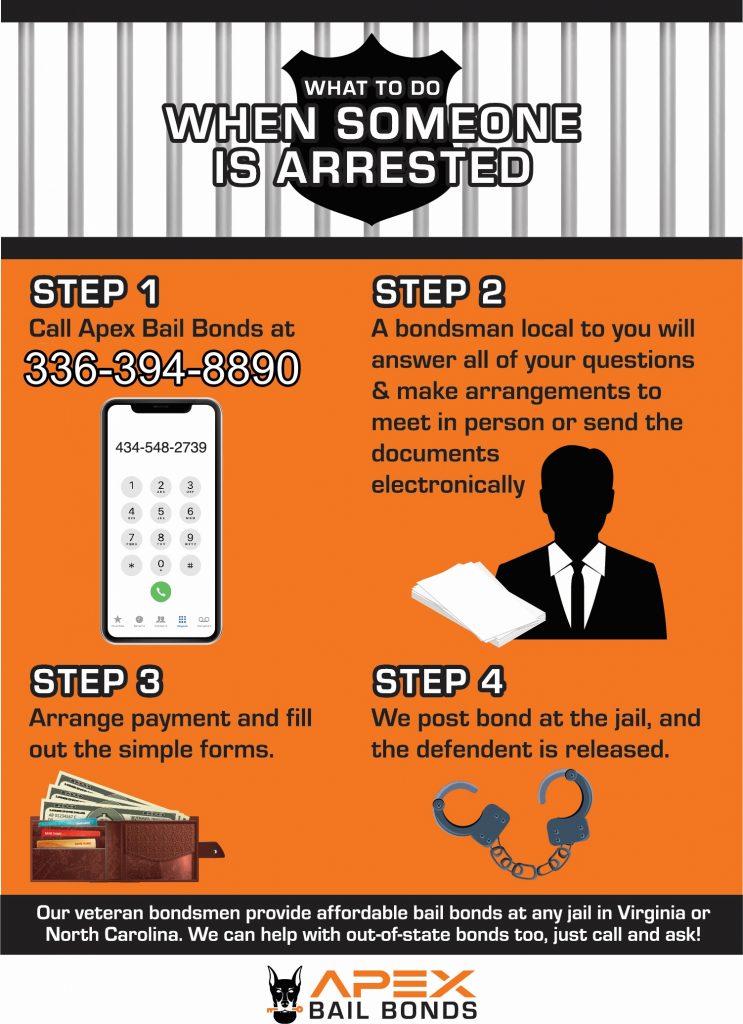In criminal offenses, second-degree murder stands as one of the gravest charges a person can face. While each state and even individual counties have their specific criteria for setting bail amounts, Alamance County, North Carolina, provides clear guidelines for such cases. This guide will help you determine how much a bond for second-degree murder charges could cost.
Classification of Second-Degree Murder Charges in North Carolina
Second-degree murder charges are a grave charge within the spectrum of criminal offenses. Under North Carolina law, second-degree murder charges are classified as Class B1 felonies. However, the murder charges can escalate to Class B2 if the act exhibits total disregard for human life or if the murder resulted from the illegal distribution of specific substances.
How Much is the Bond for Second-Degree Murder Charges in Alamance County?
Bond amounts for severe charges like second-degree murder can be substantial, often reaching $250,000 or more. Such high numbers reflect the gravity and severity of the crime. Yet, it’s essential to note that the bond amount is not set in stone. It is contingent on various factors:
- Defendant’s criminal history: Previous run-ins with the law might influence the bond’s size.
- Severity of the crime: The more heinous the act, the higher the potential bond.
- Ties to the community: Strong community bonds might influence a reduction in the bond amount.
You can use our bail bond calculator to estimate the bond for second-degree murder charges. 24/7 to assist you.

How to Navigate High Bond Amounts
High bond amounts can be a financial nightmare, so most people will work with bail bonds services like Apex Bail Bonds in Graham, NC. Our dedicated professionals are available 24/7, ensuring that residents and attorneys in Alamance County receive prompt and reliable assistance.
Posting bail for second-degree murder charges with Apex Bail Bonds starts with a phone call at 336-394-8890. Once in touch, our team in Graham will need specifics about the defendant, including their location. Whether they’re at Alamance County Jail in Graham or elsewhere in North Carolina, it’s vital to provide this information.
After identifying and locating the defendant, an invoice will be generated, typically requiring a 10-15% payment of the bail amount. To make it convenient for you, we accept major credit cards and offer a 0% interest financing option for the remaining amount.
In cases of substantial bonds, collateral might be necessary, which can be anything of value, from cars to real estate to jewelry. Once all the paperwork is settled, the primary goal is achieved: securing the release of your loved one from jail.
The Bonds Process Explained
Upon arrest for a criminal offense, one can secure release through what’s termed an appearance bond. The person who signs this bond, vouching for the defendant’s appearance in court, is termed the surety.
However, before the bail bondsman commits, there’s typically a requirement for a co-signer.
The co-signer is a testament to the defendant’s financial stability, acting as a guarantee that the bond amount can be covered if the defendant fails to appear in court. This co-signing process is integral and necessitates someone with stable funds and a regular income.
24/7 Bail Hotline – Speak to a Bail Bondsman Now
If you need to post a high bail amount for second-degree murder charges in Alamance County, don’t navigate these complex waters alone. Contact the experts at Apex Bail Bonds in Graham, NC, to guide you through every step of the bail bonds process. We are available 24/7 to assist you.
FAQs
What differentiates a Class B1 felony from a Class B2 felony in terms of second-degree murder charges in Alamance County?
Class B1 is the general classification for second-degree murder charges. It upgrades to Class B2 under specific circumstances, like alleged murder resulting from the unlawful distribution of specific substances.
What is the typical bond amount for second-degree murder charges in Alamance County?
Bond amounts vary based on numerous factors. Given the crime’s severity, the amounts tend to be higher, but a specific figure would be at the judge’s discretion.
Can a bond for second-degree murder charges be denied in Alamance County?
Yes, depending on the crime’s circumstances and the defendant’s history, a judge might deny bail.

